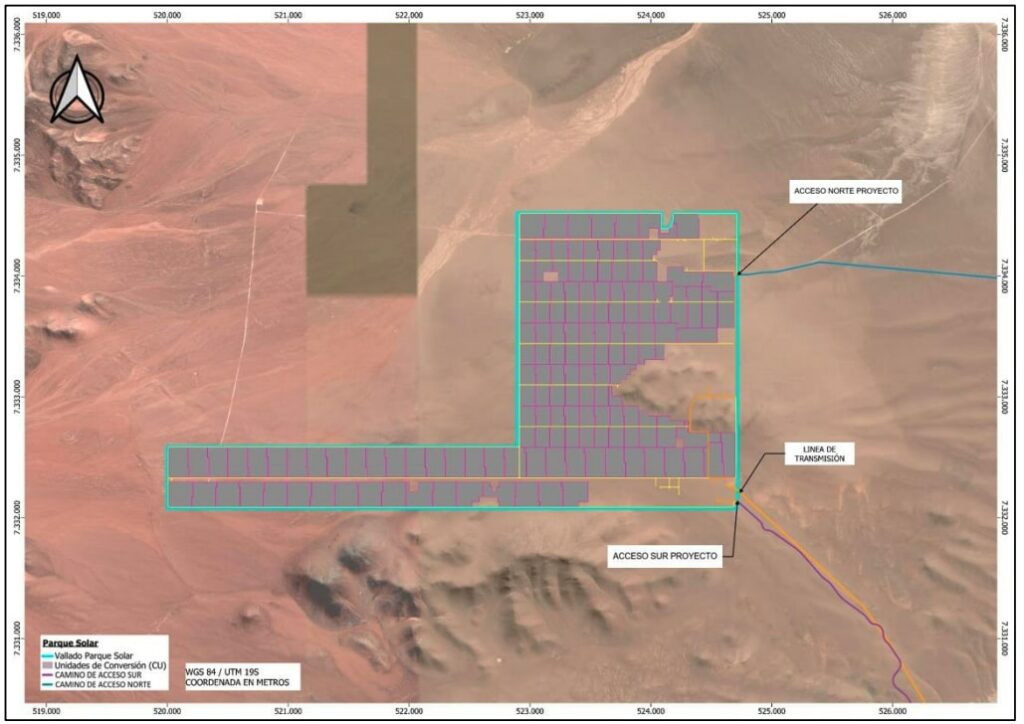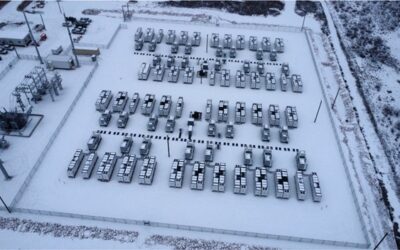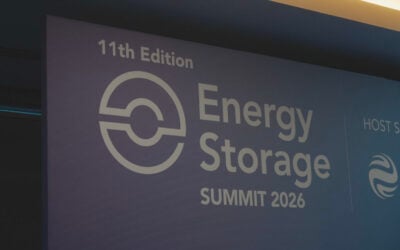
The Chile arm of global energy firm AES Corporation is looking to build another large co-located battery energy storage system (BESS), this time with a capacity of 2,710MWh.
AES Chile filed an environmental impact assessment (EIA) for the Cristales Photovoltaic Park project with the country’s EIA authority at the start of the month (2 March).
The project in Antofagasta, part of the Atacama desert region, would pair a 379MW solar PV park with a BESS unit of 542MW power and five-hours of discharge duration. That makes the potential total energy storage capacity stand at 2,710MWh or 2.71GWh.
The project would require the construction of a 220kV high-voltage line to take the energy to the Monte Mina substation, where it would then be injected into the National Electric System, the country’s grid.
Try Premium for just $1
- Full premium access for the first month at only $1
- Converts to an annual rate after 30 days unless cancelled
- Cancel anytime during the trial period
Premium Benefits
- Expert industry analysis and interviews
- Digital access to PV Tech Power journal
- Exclusive event discounts
Or get the full Premium subscription right away
Or continue reading this article for free
If approved, construction could start on 10 January, 2024, and the project could be online by the first quarter of 2028 according to AES’ EIA submission. The company is pegging the investment needed at US$710 million.
In a comment on why it chose the location, the EIA submission said: “The site has a high potential for solar use for the exploitation of photovoltaic solar parks, given that with the information available in the Solar Explorer of the Ministry of Energy, the daily average horizontal global irradiation is 7.47kWh/m2/day, with a minimum of 4.74kWh/m2/day and a maximum of 9.81kWh/m2/day as a monthly average.”
It is the second project of this scale that AES Chile has submitted an EIA for in the space of a month. In February, as reported by Energy-Storage.news, it proposed a solar, wind and BESS hybrid project with an energy storage capacity of over 3,000MWh.
Chile has seen a raft of large-scale energy storage projects paired with renewables proposed in the last year, a trend which has accelerated since it passed a bill to incentivise the deployment of energy storage and EV take-up in October 2022.
In the same month as AES’s 3,000MWh-plus hybrid project, developers Fotowatio Renewable Ventures and oEnergy submitted EIAs for projects with a combined 500MW of battery storage. At the end of 2022, Engie Chile ordered a 638MWh BESS from Sungrow for a solar-plus-storage project also in Antofagasta while a few weeks earlier utility Colbun inaugurated the first of 800MW of battery storage projects.
Read all Energy-Storage.news coverage of the energy storage market in Chile here.





